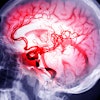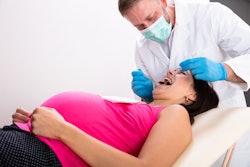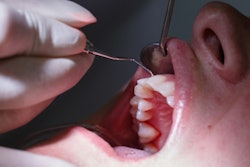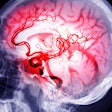Certain oral bacteria and their levels in the microbiome of pregnant women may be linked to stress, anxiety, depression, and post-traumatic stress disorder (PTSD). The study was published in BMJ Mental Health.
These same oral microbiome imbalances weren’t associated in the same way with those who weren’t pregnant. The study is believed to be the first to examine the relationship between oral bacteria and maternal mental health, the authors wrote.
"Our study shows that numerous aspects of the oral microbiome in pregnancy are associated with women’s life stress and mental health," wrote the study's authors, led by Dr. Joseph Lonstein of Michigan State University.
While prior research has suggested a link between the oral microbiome and mental health, no previous study has studied whether there is such a connection in pregnant women.
To explore a potential connection between stress, anxiety, depression, and PTSD symptoms and oral bacteria, including alpha diversity, beta diversity, and microbe profile, 224 women of diverse ethnic backgrounds provided saliva samples prior to in-person lab visits and self-reported their stress levels and recent life stress.
Pregnancy negative life events were assessed using the Life Experiences Survey. Anxiety was assessed using the State-Trait Anxiety Index. Depression was measured using the Edinburgh Postnatal Depression Scale, and PTSD was assessed using the post-traumatic stress checklist for the Diagnostic and Statistical Manual of Mental Disorders, Fifth Edition.
Pregnant women in the high trait anxiety or depression group had a greater diversity of oral alpha bacteria compared to women with low rates of stress, anxiety, depression, and PTSD. Specifically, Proteobacteria and Firmicutes were more abundant in women with high recent life stress, and Spirochaetes was more abundant in women with high depression symptoms, the researchers wrote.
Additionally, Dialister (which was previously shown to be lower in the microbiome of non-pregnant people) was higher in women experiencing either high trait or state anxiety or high depression symptoms, while levels of Eikenella were higher in women with high trait anxiety, depression, or PTSD.
However, the study had limitations, including that there were insufficient data to assess participants' diet or body weight, no other sources of microbes were analyzed, such as the lower gastrointestinal system, which can have a bidirectional relationship with oral bacteria, and anxiety and depression measures were based on self-assessments.
The next step should be to study specific targets and use probiotic therapies to analyze their possible effects on maternal mental well-being, the authors wrote.
"Successful targeting of the gut microbiome with probiotic treatment to improve maternal mental health could be extended in future studies to target oral cavity microbes through dietary changes, making recommendations for improving oral health, and probiotic treatments that might benefit mothers struggling with high life stress and poor mental health," Lonstein and colleagues wrote.



















